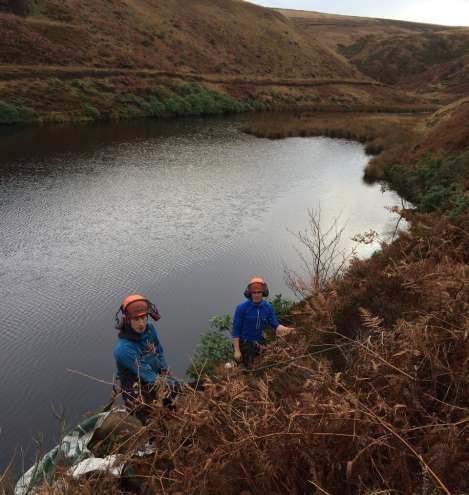The flailing works were carried out for a number of reason.
1.To create a firebreak, which in the event of a wildfire would help stop it spreading across the rest of the moor.
2.For trial plots, to investigate sward management and sphagnum seeding.
3.Flailing of large areas as part of sward management.
The remote locations of the sites, soft ground conditions and access problems meant that our specialist Alpine compact tractors and flails were perfect for the task. All areas were plotted and recorded on our specialist GPS equipment giving exact locations and areas flailed.

We were also successful in treating and removing a vast infestation of Rhododendrons from the bank sides of a reservoir. Using specially trained access operators that could safely lower themselves down the steep inclines to cut and remove the plants. The objective is to aim to completely eradicate the species from the area. Rhododendron is an invasive species and grows aggressively. Once established it reduces the population of native plants and makes physical access an issue.

In the course of 2014, a variation in contracts saw the DTMS team enjoying many a fine breakfast from London to the Peak District. The best breakfast award for 2014 goes to Viv Cambell at Lane End Farm, Meltham. Not only were the team welcomed with home-made cakes and pots of tea, but Viv also kindly gave a lift from the local pub quiz.